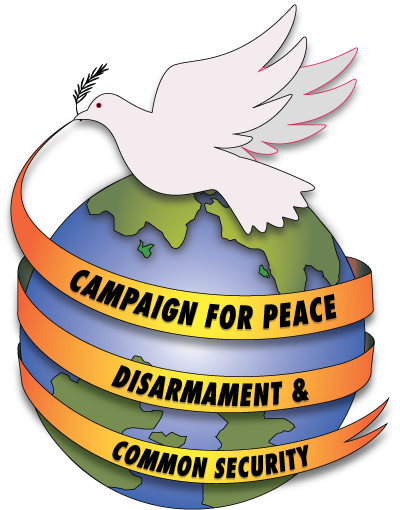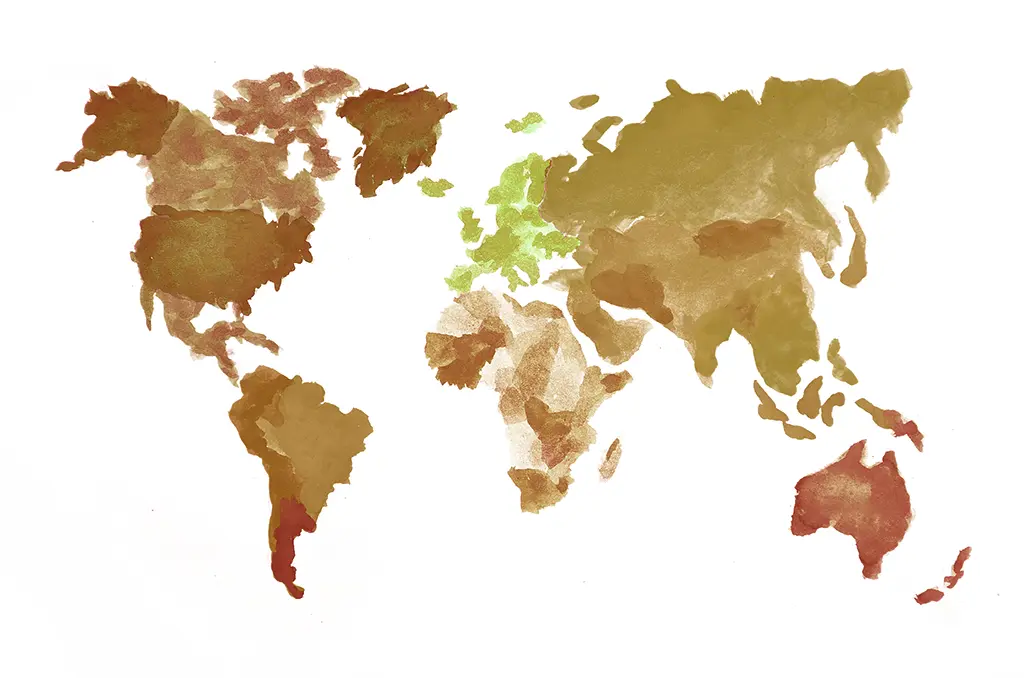CPDCS Joins International Peace & Common Security Advocates Opposing QUAD and AUKUS Alliances - Sept. 24 Statement
Peace and Common Security Advocates from Around the World Oppose QUAD (Japan, India, US, Australia), & AUKUS (Australia, UK, US) Militarism & Urge Common Security Collaborations to Address Existential Nuclear, Climate & Pandemic Threats
September 24, 2021
Meeting on the eve of the QUAD alliance summit, peace, justice and common security advocates from the QUAD and AUKUS member countries, and Australia, Philippines, Vietnam, Japan, South Korea, India, Britain, Germany, and the U.S. met to analyze and build opposition to the dangerous and increased militarism of the QUAD and AUKUS alliances.
The incipient coalition decries the QUAD and AUKUS alliances which dangerously intensify geostrategic military tensions with China. In addition to increasing the dangers that accidents or miscalculations to trigger escalation to catastrophic wars, this increased military competition seriously undermines the possibility of U.S.-Chinese and broader international cooperation to reverse the existential threats of nuclear weapons, the climate emergency, and pandemics. The strategic competition between the great powers includes the danger of a great power war which will destroy the planet.
Opposing the recently announced U.S.-Australian-British alliance, Australian peace organizations are demanding that Australia not become a staging point for the U.S. military, that Australian sovereignty not be abrogated to the U.S. and their government must not encourage the nuclear proliferation and risk environmental catastrophe inherent in the agreement to purchase submarines powered by highly enriched uranium.
President Biden has spoken of an inflection point. Negotiation and announcement of the AUKUS alliance indeed marks a dangerous turning point in geostrategic situation. Among them:
- Instead of increasing stability and security, the QUAD and AUKUS alliances fuel dangerously spiraling cold war-like arms races that must be reversed with common security diplomacy.
- The transfer of highly enriched uranium and related technologies to Australia, violates the Nuclear Nonproliferation Treaty, and encourages nuclear weapons proliferation. It provides Australia with resources needed to become a nuclear power, and significant political and military figures in India, South Korea and Japan ask why they have been denied these capabilities.
- Announcement of the AUKUS alliance has disastrous global strategic ramifications. Coming on the heels of the precipitous NATO withdrawal from Afghanistan, the Biden Administration has again acted without consulting its NATO allies. This fuels calls from European and E.U. leaders to create an independent European military superpower. The new military alliance strengthens worldwide the arms race.
- The AUKUS alliance increases pressure on ASEAN and other nations to choose between sides in a way that compromises their independence.
Forty years ago, the adoption of common security diplomacy played major roles in the negotiation of the Intermediate Nuclear Forces Treaty and the end of the Cold War. The new international peace coalition is committed to building international pressure for Indo-Pacific demilitarization and common security diplomacy to address and reverse the existential threats posed by nuclear weapons, the climate emergency, and pandemics.
No to military alliances and preparation for catastrophic wars. Yes to peace, disarmament, justice, and the climate.
Signatories (as of 0400H Manila time of Sept.25, 2021)
International Peace Bureau
Asia Europe Peoples Forum – Peace and Security cluster
Independent and Peaceful Australia Network
Australian Anti Bases Campaign Coalition
Campaign for Peace, Disarmament and Common Security
Global Network Against Weapons & Nuclear Power in Space
Guahan Coalition for Peace and Justice (Guam)
Le Mouvement de la Paix (France)
Veterans For Peace Chapter 113 Hawaii
Peace Women Partners, Philippines
Action for Sovereign Philippines
I Hagan Famalao’an Guahan, Inc. (Guam)
KILUSAN (Movement for National Democracy) Philippines
KAISAKA (Unity of Women for Liberation) Philippines
Maui Peace Action (Hawaii)
Bukluran ng Manggagawang Pilipino (Solidarity of Filipino Workers/BMP) Philippines
Committee for a Sane U.S.-China Policy (US)
Philippine Women’s Network for Peace and Security
Hawaiʻi Peace and Justice
ʻOhana Koa / Nuclear Free and Independent Pacific
Blue Banner Mongolia
Initiatives for International Dialogue
ALAB Katipunan (Philippines)
Japan Asia Africa Latin America (Japan)
MapaladKa Peace Movement (Philippines)
Communist Party of Australia
Malu ‘Aina Center For Non-violent Education & Action
Dap-ayan ti Babba-I (North Luzon, Philippines)
YouWin (Young Women’s Initiatives)
Kauai Women’s Caucus (Hawai’i)
*Those listed below have signed in a personal capacity only and the organisations associated with them are for identification purposes.
Annette Brownlie (Independent & Peaceful belo0e
Denis Doherty (AABCC, Australia)
Ross Wynther (IPAN, Australia)
Anuradha Chenoy (Asia Europe Peoples Forum, India)
Reiner Braun (International Peace Bureau, Germany)
Michael Klare (Committee for a Sane US-China Policy)
Joseph Gerson (Campaign for Peace, Disarmament and Common Security, US)
Mililani B. Trask (Hawaii)
Dave Webb (Campaign for Nuclear Disarmament, UK)
Tina Ebro (Asia Europe Peoples Forum, Philippines)
Dong Huy Cuong (Asia Europe Peoples Forum, Vietnam)
Francis Daehoon Lee (Peace MOMO, Korea)
Roland Simbulan (Professor at the University of the Philippines)
Corazon Valdez-Fabros (International Peace Bureau, Philippines)
Alain ROUY (Le Mouvement de la Paix, France)
Merci Angeles (Peace Women Partners, Philippines)
LisaLinda Natividad (Guahan)
Kevin Martin (Peace Action, US)
Jim Anderson (Peace Action, National Office, USA)
Emily Rubino (New York Peace Action and the CPDCS, US)
Cole Harrison (Massachusetts Peace Action, US)
Mele Stokesberry (Maui Peace Action, Hawaii)
Kyle Kajihiro (Hawai’i Peace and Justice, Koa Futures)
Ann Wright, Veterans For Peace Chapter 113-Hawai’i
Ruchama Marton (Physicians for Human Rights, Israel)
Susan Hawthorne (Spinifex Press, Australia)
Mandira Tamrakar (Nepal)
Fabiana Elias de Mesquita (Brazil)
Maria Miel Laurinaria (Phil. Women’s Network for Peace & Security)
Djoana Janier (Scrap VFA Movement, Philippines)
Dr Kate Dewes (Aotearoa/New Zealand)
Rasti Delizo (Bukluran ng Manggagawang Pilipino, Philippines)
Aida Fulleros Santos (International Women’s Network against Militarism, Philippines)
Lot dela Cruz (Stop the War Coalition Philippines)
Gwen Kim (Mauna Kea Kupuna, Retired Social Work Administrator)
Terrilee Kekoʻolani-Raymond (ʻOhana Koa / NFIP)
Kalama Niheu (ʻOhana Koa / NFIP)
Enkhsaikhan Jargalsaikhan (Blue Banner/Mongolia)
Raquel de Guzman Castillo (National Coordinator, LABAN NG MASA/Philippines)
Daisuke Sato (No Nukes Asia Forum/ Japan)
Ronald Fujiyoshi (Hawaii)
Choi Sung-Hee, Gangjeong Peace Network, Jeju, Korea
David Vine, Professor Department of Anthropology, American University
Raynae Fonoimoana
Jim Albertini, Malu Aina, Hawai
Laurel Brier (Anahola HI)
Alvaro Senturias, Jr.(Pastor, United Church of Christ in the Phils)

